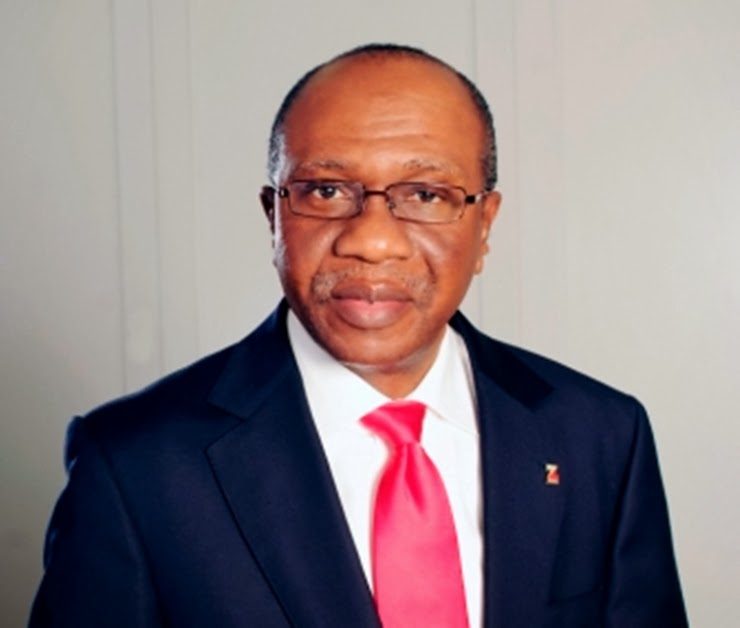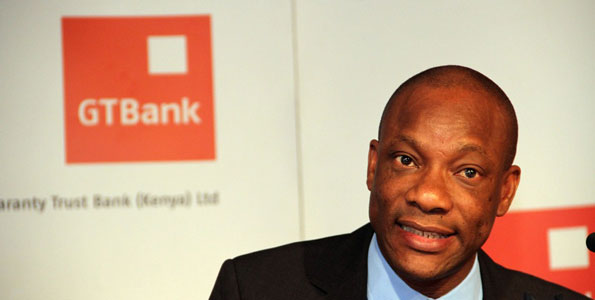Nigeria’s most profitable bank, GTBank just reduced its monthly Naira MasterCard dollar expenditure limit to $100 a month. This limit usually affects bank customers who use their bank accounts to settle dollar denominated bills from vendors like Google, Facebook, Ali Baba and a host of other usual suspects. It also affects customers of the bank who travel abroad for business, pleasure or medical purposes.
Throughout the year, GTBank has been adjusting the level of expenditure these kind of clients are allowed to make outside the country and from a high of $2,000 in April, the limit has crashed to $100. This information was passed across in an emailed circular to clients of the bank sometime last week.
It is obviously no fault of the bank as dollars have turned into unicorns in the Nigerian economy, literally the stuff of fantasy. Our correspondent took to the streets to find out how the latest development is affecting Nigerians both home and abroad.
Fisayo, a student and customer of the bank based in North America said, “The reduction in the limit I can spend on my Naira mastercard is really giving my parents a lot of headaches on how to send me money. Usually they pay my housing and feeding allowance into my savings account and I can withdraw the equivalent here usually at any Bank of America, but with the new reduction, my father had to send me his ATM card for another bank with a more robust limit to allow me focus on my studies.”
Nkem, a blogger said, “I have had to change the way I operate my business. I usually have Facebook and Google direct debit my card which is linked to my account, but with the new scheme of things, I have had to cancel the services which is having a negative impact on my business. This new FX regime is making life really hard for small business owners like myself. I don’t know whether I should blame the bank or the government at this point.”
Mike, a financial analyst based in Lagos said the bank was heavily involved in forex trading in a manner that did not put the customer first. He said, “GTBank made #91 billion profit over the first six months of the year. It earned over #100 billion in non interest income, which is unprecedented for any bank, especially in this era of Buharinomics. By its own admission, a chunk of that largess came from a significant growth in fees and commission income, and foreign exchange income. Basically the bank gets dollars at the lesser interbank rate and onsells to its customers at a rate closer to the black market. At times there is a spread of #50 to #100, maybe even more per dollar sold.”
So assuming the limit was $2000 and assuming the bank has 30,000 customers in the diaspora, using its card for transactions. That is a profit of #3 billion to #6 billion in such a month for the bank. Not based on business acumen or financial ingenuity but basically as a result of having access to dollars and having a large pool of customers to sell it to at a rate that nearly mirrors the parallel market.
Ugo, a financial and capital markets analyst based in Lagos said, “The reduction in the spending limit has come as a result of CBN forex restrictions.”
“Basically the Bank had to act in order to stop some banks from profiting on the arbitrage made available due to the gap between the official and interbank rates, and booking huge profits in a manner not related to the basic tenets of good banking. Many banks are used to making easy money and one of the goals of this CBN is to stop the practices in their tracks.”
He added “Making profits is good for shareholders and the sector in general, however at whose expense. The apex bank has to step in to protect the consumers who have little choice in these issues due to scarcity of alternatives. By introducing smaller limits, the banks will be disinterested in profiting on the arbitrage and that will help to close the gap between the rates and return sanctity to the forex market”.

However, information gleaned by The Herald reveals that the Central Bank actually granted banks permission to charge their customers parallel market rate thereby fuelling their huge profits at the expense of the customer.
A research report Cardinal Stone Partners sent to its clients shed more light on the anti-people policy.
An excerpt from the report reads:
Card revenue for the banks in our coverage universe grew by an average of 88% between FY’15 and H1’16 (annualized) respectively. The significant jump between FY’15 and H1’16 as we gathered was partly as a result of an informal agreement between the CBN and banks to set card rate close to parallel market rate so as to discourage FX round tripping and speculations. Card transactions are typically settled by Nigerian banks at a rate that is substantially higher than the interbank rate (spread to interbank rate is about 55% on average). With this many banks saw a substantial improvement in non-interest income despite the lack of liquidity in the interbank FX market.
Banks that reportedly benefited the most from the policy were GTBank, Fidelity Bank, Access Bank and UBA.

